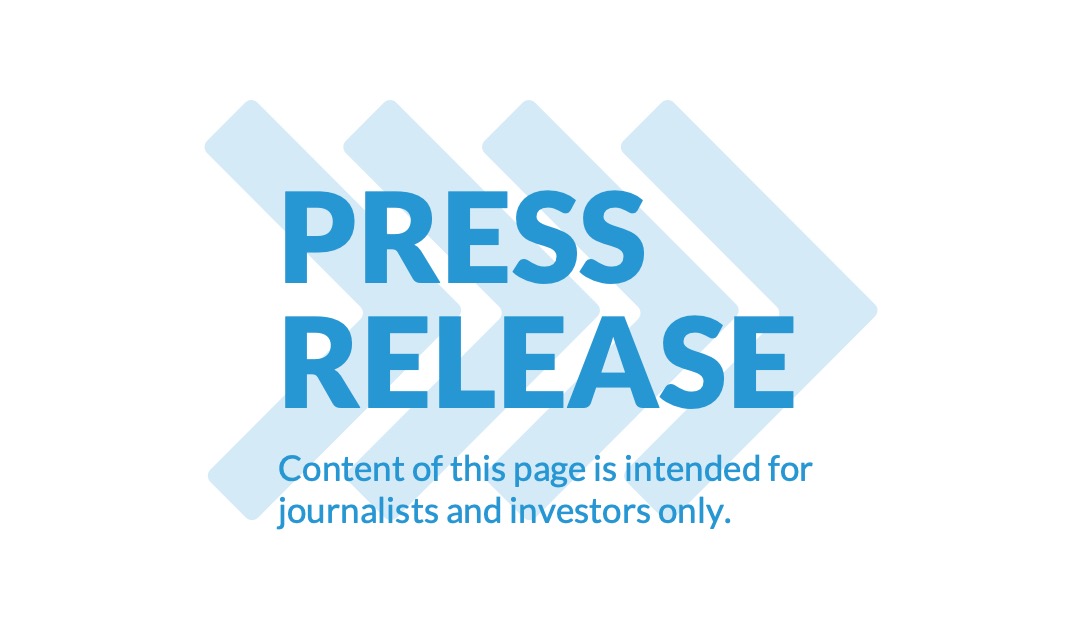Ipsen receives positive opinion in Europe for Dysport® in the management of urinary incontinence in adults with neurogenic detrusor overactivity due to multiple sclerosis or spinal cord injury
- Submission based on data from the pivotal international Phase III CONTENT clinical program, also recently published in European Urology1
- CONTENT showed that Dysport® decreased incontinence episodes, detrusor pressure and increased bladder capacity versus placebo, and improved quality of life1
PARIS, FRANCE, 9 June 2022 – Ipsen (Euronext: IPN; ADR: IPSEY) today announced that Dysport® (abobotulinumtoxinA) has received positive opinion in Europe for the management of urinary incontinence (UI) in adults with neurogenic detrusor overactivity (NDO) due to spinal cord injury (SCI) (traumatic or non-traumatic) or multiple sclerosis (MS), who are regularly performing clean intermittent catheterization (CIC).
This positive opinion for Dysport® now permits individual European country Health Authorities to grant national approvals, according to their country regulations. In addition, Ipsen is also currently in the process of obtaining approvals in other countries outside the European Union.
Dysport® is an injectable form of a botulinum neurotoxin type A (BoNT-A) product, which has previously shown clinically meaningful benefit in the symptomatic treatment of focal spasticity and cervical dystonia.
About the CONTENT Phase III program
Dysport® was assessed in CONTENT, a large, international, Phase III clinical program. The CONTENT1 and CONTENT2 Phase III trials included 485 patients living with NDO and UI who were regularly undergoing CIC and inadequately managed by oral therapy.1
Patients recorded the number of UI episodes they experienced per day over a 7-day period in an eDiary at baseline and at weeks 2, 6, and 12, and every 12 weeks thereafter. The volume per void during a 24-hour period was also recorded in the eDiary.1
About neurogenic detrusor overactivity
Neurogenic detrusor overactivity (NDO) incontinence is a chronic condition caused by lesions of the central nervous system that result in urinary incontinence (UI).1,2
Up to 99% of patients living with MS and up to 84% of patients living with SCI suffer from NDO2,3 and it can cause a substantial impairment to quality of life, social isolation, and embarrassment.4
About Dysport®
Dysport® (abobotulinumtoxinA) is an injectable form of a botulinum neurotoxin type A (BoNT-A) product, which is a substance derived from Clostridium bacteria producing BoNT-A that inhibits the effective transmission of nerve impulses and thereby reduces muscular contractions. It is supplied as a lyophilized powder. AbobotulinumtoxinA has marketing authorization in more than 90 countries, more than 30 years of clinical experience and 6 million treatment years of patient experience.
The detailed recommendations for the use of Dysport are described in the Summary of Product Characteristics (SmPC) for Dysport (300 units) Powder and Dysport (500 units) Powder, and the U.S. Prescribing Information (PI).
NOTE: Dysport® labels and approved indications may vary from country to country.
About Ipsen
Ipsen is a global, mid-sized biopharmaceutical company focused on transformative medicines in Oncology, Rare Disease and Neuroscience. With Specialty Care sales of over €2.6bn in FY 2021, Ipsen sells medicines in over 100 countries. Alongside its external-innovation strategy, the Company’s research and development efforts are focused on its innovative and differentiated technological platforms located in the heart of leading biotechnological and life-science hubs: Paris-Saclay, France; Oxford, U.K.; Cambridge, U.S.; Shanghai, China. Ipsen has around 4,500 colleagues worldwide and is listed in Paris (Euronext: IPN) and in the U.S. through a Sponsored Level I American Depositary Receipt program (ADR: IPSEY). For more information, visit ipsen.com.
Ipsen’s Forward-Looking Statements
The forward-looking statements, objectives and targets contained herein are based on Ipsen’s management strategy, current views and assumptions. Such statements involve known and unknown risks and uncertainties that may cause actual results, performance or events to differ materially from those anticipated herein. All of the above risks could affect Ipsen’s future ability to achieve its financial targets, which were set assuming reasonable macroeconomic conditions based on the information available today. Use of the words “believes”, “anticipates” and “expects” and similar expressions are intended to identify forward-looking statements, including Ipsen’s expectations regarding future events, including regulatory filings and determinations. Moreover, the targets described in this document were prepared without taking into account external growth assumptions and potential future acquisitions, which may alter these parameters. These objectives are based on data and assumptions regarded as reasonable by Ipsen. These targets depend on conditions or facts likely to happen in the future, and not exclusively on historical data. Actual results may depart significantly from these targets given the occurrence of certain risks and uncertainties, notably the fact that a promising product in early development phase or clinical trial may end up never being launched on the market or reaching its commercial targets, notably for regulatory or competition reasons Ipsen must face or might face competition from generic products that might translate into a loss of market share. Furthermore, the research and development process involves several stages each of which involves the substantial risk that Ipsen may fail to achieve its objectives and be forced to abandon its efforts with regards to a product in which it has invested significant sums. Therefore, Ipsen cannot be certain that favorable results obtained during preclinical trials will be confirmed subsequently during clinical trials, or that the results of clinical trials will be sufficient to demonstrate the safe and effective nature of the product concerned. There can be no guarantees a product will receive the necessary regulatory approvals or that the product will prove to be commercially successful. If underlying assumptions prove inaccurate or risks or uncertainties materialize, actual results may differ materially from those set forth in the forward-looking statements. Other risks and uncertainties include but are not limited to, general industry conditions and competition; general economic factors, including interest rate and currency exchange rate fluctuations; the impact of pharmaceutical industry regulation and health care legislation; global trends toward health care cost containment; technological advances, new products and patents attained by competitors; challenges inherent in new product development, including obtaining regulatory approval; Ipsen’s ability to accurately predict future market conditions; manufacturing difficulties or delays; financial instability of international economies and sovereign risk; dependence on the effectiveness of Ipsen’s patents and other protections for innovative products; and the exposure to litigation, including patent litigation, and/or regulatory actions. Ipsen also depends on third parties to develop and market some of its products which could potentially generate substantial royalties; these partners could behave in such ways which could cause damage to Ipsen’s activities and financial results. Ipsen cannot be certain that its partners will fulfil their obligations. It might be unable to obtain any benefit from those agreements. A default by any of Ipsen’s partners could generate lower revenues than expected. Such situations could have a negative impact on Ipsen’s business, financial position or performance. Ipsen expressly disclaims any obligation or undertaking to update or revise any forward-looking statements, targets or estimates contained in this press release to reflect any change in events, conditions, assumptions or circumstances on which any such statements are based, unless so required by applicable law. Ipsen’s business is subject to the risk factors outlined in its registration documents filed with the French Autorité des Marchés Financiers. The risks and uncertainties set out are not exhaustive and the reader is advised to refer to Ipsen’s 2021 Universal Registration Document, available on ipsen.com.
For further information:
| Contacts | |
| Investors
| |
| Craig Marks
Vice President, Investor Relations +44 7584 349 193 | Adrien Dupin de Saint-Cyr
Investor Relations Manager +33 6 64 26 17 49 |
| Media | |
| Michelle Cammack
Senior Director & Global Head of Neuroscience Franchise Communications Global Communications & External Affairs +44 7768 502 091 |
- Kennelly M et al., Efficacy and Safety of AbobotulinumtoxinA in Patients with Neurogenic Detrusor Overactivity Incontinence Performing Regular Clean Intermittent Catheterization: Pooled Results from Two Phase 3 Randomized Studies (CONTENT1 and CONTENT2). European Urology. 2022; S0302-2838(22)01680–3
- Mehnert U, et al., The Management of Urine Storage Dysfunction in the Neurological Patient. SN Comprehensive Clinical Medicine. 2019; 1:160–182
- Alsulihem A and Corcos J. Evaluation, treatment, and surveillance of neurogenic detrusor overactivity in spinal cord injury patients. Neuroimmunol Neuroinflammation. 2019; 6:13
- Ginsberg, D. The Epidemiology and Pathophysiology of Neurogenic Bladder. Am J Manag Care. 2013; 19(10)191–6
Attachment




